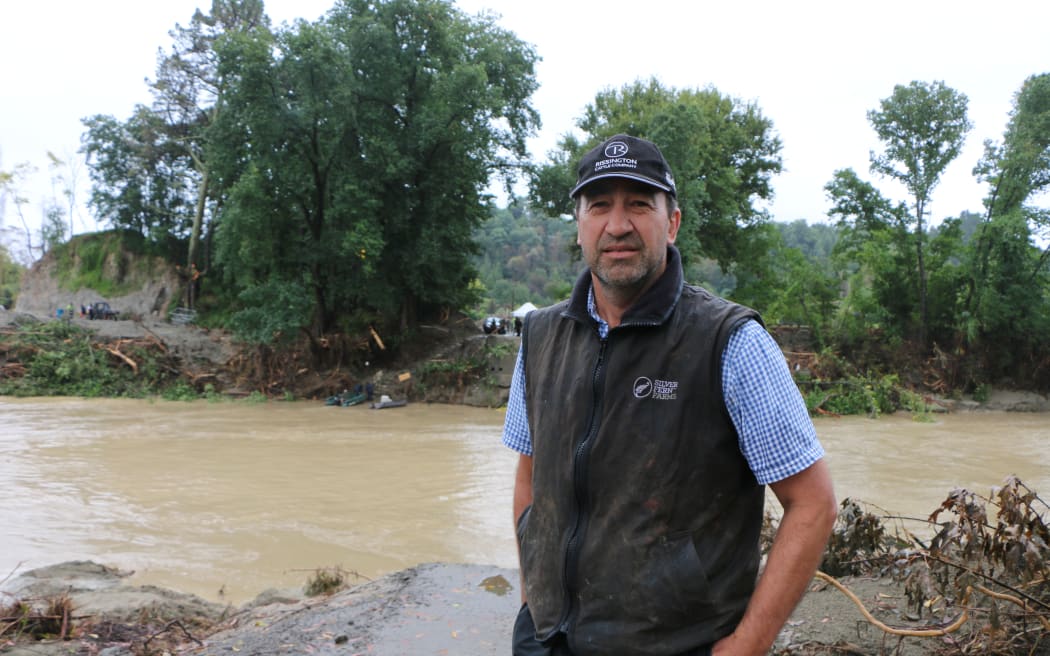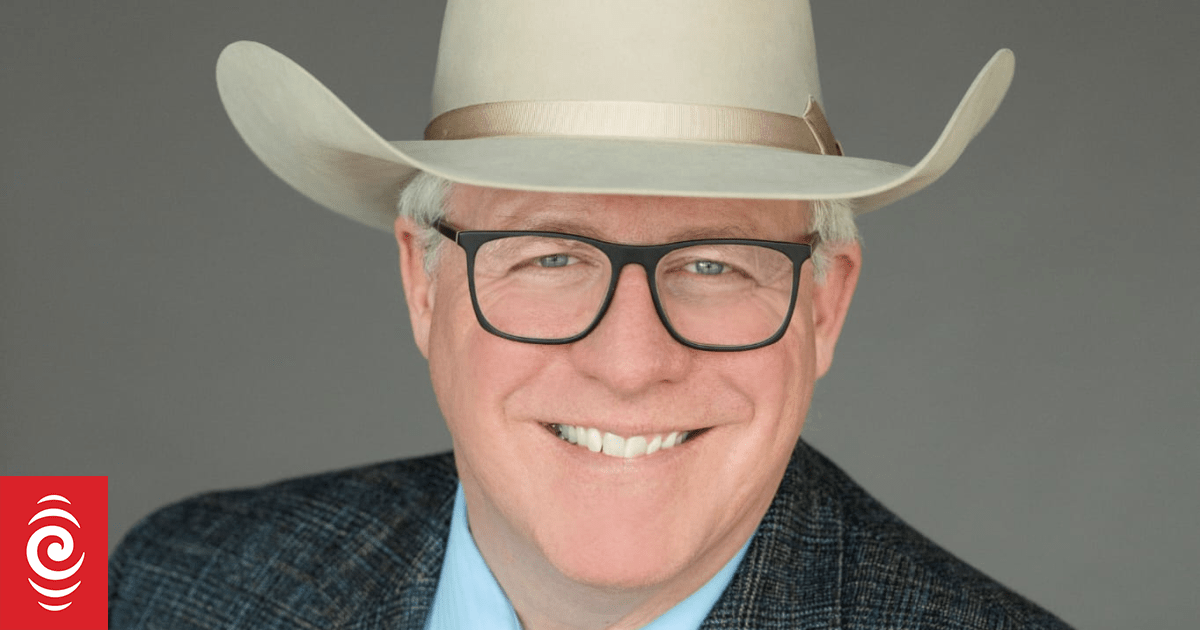Lee Leachman from Wyoming was talking to New Zealand farmers about capitalising on global beef prices.
Photo: supplied
A longtime Hawke’s Bay bull breeder says dairy farmers are knocking on his door in search of a new source of revenue.
Jeremy Absolom farms a large herd with multiple breeds across nearly 2000 hectares with his brothers at the Rissington settlement northwest of Napier.
Supplying sheep and beef farmers with bulls and semen has been the farm’s bread and butter going back generations. These days large dairy operators are a growing chunk of the Rissington Cattle Company’s business.
Jeremy Absolom, a bull breeder in Hawke’s Bay, out in the paddock at the Rissington Cattle Company.
Photo: supplied
This week Absolom ran a seminar in Canterbury to show farmers the results of using beef semen to breed with dairy cows.
The speaker was the leading American rancher Lee Leachman, of Leachman Cattle in Wyoming.
Leachman said it’s a “significant source of revenue” in the United States and initial results from New Zealand are promising.
“I remarked to the group that in the United States the day old beef on dairy calf is worth well over US$1200 per calf. Everyone was just shocked,” Leachman said.
Beef-cross calves are generally more valuable than straightbred dairy calves, especially when sold for beef.

Jeremy Absolom pictured in the aftermath of Cyclone Gabrielle at the site of the destroyed Rissington Bridge.
Photo: RNZ / Maja Burry
“There was a fair bit of opinion that they’d be hard pressed to get them to perform as beef-cross calves. But the results we saw this week were promising. They looked to be quite valuable,” Leachman said.
Absolom said the Rissington breeding operation was a trailblazer integrating beef to dairy in the 1990s. On a visit to the US this year he said it was interesting to hear how the industry talks about it.
“In the United States it’s coined as a co-product, rather than a by product.”
Meanwhile back in Hawke’s Bay on the farm at Rissington, Absolom said he’s grateful for the strong market as the business continues its recovery from Cyclone Gabrielle.
They lost cattle yards, a wool shed and accommodation buildings. The river valley was covered in thick layers of silt and the Rissington bridge was washed out as the river gave way.
He said it’s been a slow and steady recovery. And a lift in demand from a more traditional source of income has also come at the right time.
“Traditional beef farmers have been over the last few years lifting the beef part of their business as a share of their overall stocking rates,” Absolom said.
Lee Leachman and Daniel Absolom at Rissington.
Photo: supplied
“They’re down in their sheep numbers and up in their beef moving towards 50:50 rather than in some cases what was once as high as 80:20 in favour of sheep.”
Sign up for Ngā Pitopito Kōrero, a daily newsletter curated by our editors and delivered straight to your inbox every weekday.

